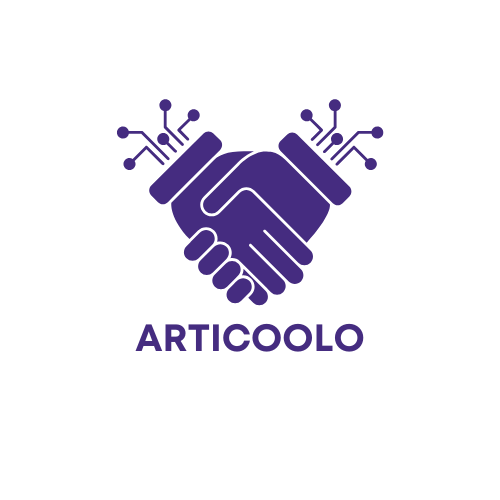In a world where content is king and calendars are often more chaotic than a cat on a hot tin roof, AI automation swoops in like a superhero. Imagine effortlessly organizing your content schedule while sipping your coffee—no more late-night panic attacks over forgotten posts. With AI on your side, you can turn your content calendar from a jumbled mess into a well-oiled machine.
Understanding AI Automation for Content Calendars
AI automation streamlines the management of content calendars, making scheduling more efficient and organized. It transforms traditional methods of planning by integrating intelligent systems that assist in content scheduling.
What is AI Automation?
AI automation refers to the use of artificial intelligence technologies to perform tasks that typically require human intervention. It enables software applications to analyze data and make decisions autonomously. With AI, content workflows become more efficient, allowing for quicker adaptations to changing trends. These systems can generate insights about audience engagement, optimizing when and what to post.
Benefits of Using AI for Content Planning
AI enhances content planning in several key ways. First, it saves time by automating repetitive tasks, freeing up creative professionals for more strategic work. Second, AI tools analyze data patterns, providing actionable insights that improve content relevance. Increased accuracy in scheduling minimizes the chances of missed posts. Adaptive algorithms ensure content aligns with audience preferences, leading to enhanced engagement. Overall, embracing AI in content planning leads to a more effective and streamlined content calendar.
Key Features of AI Tools
AI tools offer several key features that significantly enhance content calendar management. These features empower users to maximize efficiency and effectiveness in their content strategies.
Content Generation
Content generation capabilities harness advanced algorithms to create engaging articles, social media posts, and other content types. Text generation tools analyze previous successful content to craft new pieces that resonate with target audiences. Users benefit from improved creativity, as AI suggests relevant topics based on current trends. This automated process reduces writer’s block, making it easier to maintain a consistent flow of high-quality content. Additionally, personalization features tailor content for specific demographic segments, ensuring that every piece aligns with audience interests.
Scheduling and Optimization
Scheduling and optimization functionalities streamline the posting process. Automated scheduling tools allow for precise timing of content releases, maximizing visibility and engagement. These systems analyze audience data to identify peak engagement times, ensuring posts reach viewers when they are most active. Constant optimization occurs as AI adjusts schedules based on evolving trends and performance metrics. This adaptability enables content strategies to remain relevant and effective over time, allowing brands to maintain a strong online presence without manual intervention.
How to Implement AI Automation in Your Content Calendar
Implementing AI automation in a content calendar enhances productivity and organization. Several key steps facilitate this process.
Choosing the Right AI Tools
Select AI tools that fit specific content needs. Analyze features, such as content generation and audience insights. Consider platforms like HubSpot or CoSchedule for comprehensive solutions. Evaluate pricing structures to align with budget constraints. Focus on user-friendly interfaces to ease the learning curve. Test free trials to gauge tool effectiveness before committing.
Integrating with Existing Systems
Integrate AI automation seamlessly with existing workflows. Prioritize tools that support APIs for easy synchronization. Ensure compatibility with current content management systems to prevent disruptions. Streamlining processes minimizes the need for retraining staff. Leverage existing data to enhance customization and targeting. Collect feedback from team members for continuous improvement after implementation.
Best Practices for Enhancing Your Content Calendar
Optimizing a content calendar requires strategic planning and analysis. These best practices ensure a streamlined and effective content management process.
Setting Goals and Objectives
Establishing clear goals defines the content calendar’s success. Specificity in objectives enhances focus, driving content that aligns with overarching business aims. Metrics such as audience engagement, traffic targets, and conversion rates serve as benchmarks. Involving team members in goal-setting encourages accountability and collective ownership. Regularly revisiting these objectives maintains clarity and relevance, especially as market conditions evolve. Ultimately, well-defined goals guide content strategies and improve overall performance.
Analyzing and Adjusting Content Strategies
Analyzing performance metrics enables data-driven decision-making. Reviewing engagement rates fosters understanding of audience preferences, shaping future content. Adjusting strategies based on analytics ensures alignment with interests and trends. Continuous testing of content formats and topics provides insights into what resonates best. Regular team discussions around performance results facilitate collaboration and adaptive responses. Moreover, using AI tools to track data simplifies the process, making adjustments timely and effective. Emphasizing flexibility within content strategies enhances growth and engagement levels.
Conclusion
Embracing AI automation in content calendar management transforms how brands approach content creation and scheduling. By streamlining processes and providing valuable insights, AI tools empower individuals to focus on crafting engaging content rather than getting bogged down by logistics.
The integration of advanced algorithms not only enhances efficiency but also ensures that content aligns with audience preferences. This leads to improved engagement and a more robust online presence.
As organizations adopt these innovative solutions, they can expect to see increased productivity and adaptability in their content strategies. Ultimately, leveraging AI for content planning is a strategic move that pays off in the long run.















Discussion about this post